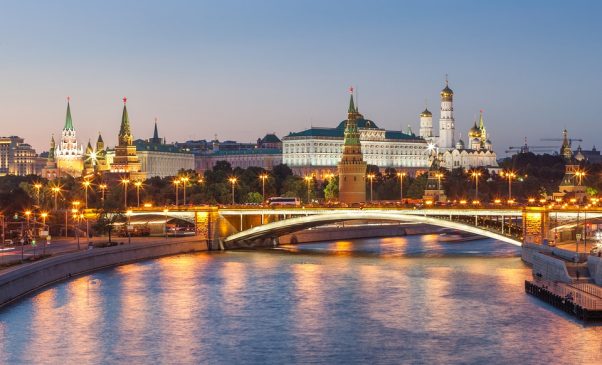Russia Redacted: New Internet Bill May Foster Censorship, Isolation
February 13, 2019 by Vladimir Litvinov
The adoption in the first reading of a draft law on the “sovereign Internet” by the State Duma, the lower parliamentary chamber in Russia, occurred earlier this week. The bill has the potential to isolate the country from the global community and would surely foster censorship.
Also read: States Moving Toward Sales Tax That Would Hit Crypto Services
We love hearing from our readers. Sound off on our Twitter or Facebook pages
Check out our insights & interviews with influential insiders on the Bitsonline YouTube channel
And for the only source of UNFILTERED trading volume, head to CoinBillboard
Does the Bill Have a Chance?
The legislators’ rationale behind the adoption of the law sounded rather innocuous: relations between the West and Russia have been sour for years, so Russia could be cut off the global web any time and should be prepared to run its own intranet.
This explanation may go down well with the majority of domestic internet users who either don’t care about politics or are susceptible to the government’s anti-Western propaganda. It sounds like a reassurance that people will be still able to use Internet the same way they’ve been using it for years even if the “evil” West cuts Russia off.
Some people, however, may wonder if the threat that Russia could be cut off from the global web is real in the first place.
The possibility was mentioned during the first months following Russia’s annexation of the Crimea peninsular region from Ukraine in March 2014, which triggered the current standoff with the West. But, again, the cut-off threat then was mentioned by local senior officials and legislators rather than coming directly from the West.
Why at this specific point should Russia be concerned about being cut off from the global internet? Over the last couple of years, Russian officials have been unhappy with how Russia is portrayed in Western media. They have been unhappy with Western tech giants, such as Google, Facebook ,and Twitter, which have been reluctant to comply with Russia’s law on personal data stipulating that all personal details of Russian citizens should be stored within Russia.
So far, Russian authorities have not cracked down on those companies, but smaller Western companies have fallen prey to the nation’s personal data law, like for instance the recruiting network LinkedIn, which has been banned in Russia since late 2015.
Meanwhile, the concept of “sovereign Internet” is set to give Russia’s communications watchdog, Roskomnadzor, huge control over what Internet traffic could enter the country and from where, substantially increasing opportunities for online censorship.
China’s Great Firewall as a Model
The draft, portrayed as a protective measure, could easily be used as a powerful censorship tool, evoking the China’s Great Firewall, also built on the concept of “internet sovereignty.”
However, there is one huge difference between the two countries. These days, China remains a Communist totalitarian state. Even though it has embraced a capitalistic economic model over the last couple of decades and opened up to global collaboration, its citizens never enjoyed much freedom at home.
Conversely, Russia saw a decade of unprecedented freedom of speech, media and expression following the collapse of the Communist system in 1991. And the arrival of the internet in the second half of the 1990s was viewed as part of that freedom.

Since the election of president Vladimir Putin in 2000, Russia has been gradually becoming more and more authoritarian, with rampant censorship and numerous restrictions on freedom of speech and internet use coming naturally as part of that path.
Some might be skeptical about Russian authorities’ technical capabilities to install something similar to China’s Great Firewall, and there might be reasons for that skepticism.
Russians have been successfully using VPNs to circumvent blockings of web sites, such as LinkedIn. Roskomnadzor’s attempt last year to block popular encrypted messaging service Telegram, which refused to collaborate with the country’s secret services, were similarly unsuccessful.
However, this time around, Russian authorities are likely to be more serious, and it’s alarming.
What’s your take? Would this bill be disastrous for freedom in Russia? Let us know in the comments section below.
Images via Pixabay




